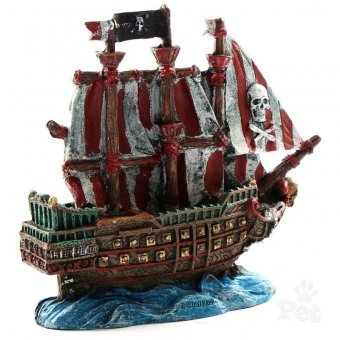
 The hardy Siamese Fighting Fish is easy to keep, quite placid on its own, and ideal for first-time or busy pet owners - so don’t be put off by the intimidating name.
The hardy Siamese Fighting Fish is easy to keep, quite placid on its own, and ideal for first-time or busy pet owners - so don’t be put off by the intimidating name.
Siamese Fighting Fish are among the most beautiful of aquatic fish, with their brilliant colours and long, flowing fins. They are also exceptionally tolerant of varying water conditions, making them one of the most popular of wet-pets.
Usually referred to by the genus name betta, these fish can be found in the wild throughout the Mekong Delta region of Southeast Asia, where they breed in warm shallow water. Bettas have evolved a special respiratory organ that allows them to gulp air from the surface. This lets them survive in very small areas of oxygen-poor or stagnant water, such as rice paddies, roadside drains and even a water-buffalo hoof print.
Siamese Fighting Fish Are Aggressive
Bettas got their common name from the aggressiveness of the males who have evolved to protect small territorial domains. The male also makes the nest and protects the eggs. Two males in the same tank will attack each other until one gives up fighting. In the wild, the defeated male has a chance of escape, but in an aquarium it will be attacked incessantly. For this reason, you can only have one male betta in a single aquarium. Females usually get along together, depending on their temperaments, but putting a female permanently in with a male is not recommended. When confronting each other, male bettas put on a vivid display of colour and flared fins, which can be encouraged by putting a mirror inside the aquarium.
The males only fight with their own species and are quite placid with other community aquarium fish such as swords. In fact, they are so good-natured with other fish species, you can’t put them in with larger or aggressive fish, as they will be beaten up.
Housing Your Siamese Fighting Fish
Overseas, Bettas are sold in smallish bowls (even vases), however, unless you want to be cleaning out the water every day, this is not healthy for the fish. Bettas need warm, clean water and room to exercise their fins to maintain good appearance. Aquatic specialists in New Zealand recommend a tank of around 35 litres with filtration and heating systems (the water needs to be around 27°C). The floor of the tank should have a thin (5mm) layer of gravel to encourage nitrifying bacteria that will help keep the water clean, and you can decorate your tank with live or silk plants to provide hiding places for your pet. Just make sure any decorations are free of rough or sharp points that could damage fins. While Bettas can live in very poor-quality water, these fish are prone to diseases such as fin rot, picked up in dirty conditions, so their aquarium needs to be cleaned every few weeks and the water changed regularly.
As insect-eaters, they need to be fed special ‘betta feed’, which is available from your pet shop, supplemented with live or frozen bloodworms and brine shrimp to maintain their colours.
Siamese Fighting Fish Are Very Attractive
You can buy Bettas in a variety of different tail colours and shapes – from veil-tails to delta-tails and the much sought-after 180° half-moon tail. All tail forms come in a stunning array of colouration, from marbled to turquoise and black. However, the variety of fish in New Zealand is far more limited than it is overseas where breeding has reached an art form. Growing to about 7.5cm in length, the males have showier fins and more colour than females, which are about half the size.
Cost Of Siamese Fighting Fish
A common veil-tail male betta will cost around $12.95 and a female $6.95 at your local pet shop or aquatic specialist. The more exotic-tailed fish cost more; for example a crown-tail betta will likely cost around $20.
In good health, your fish can live up to two years, but remember it will already be around six months old, or middle-aged when you buy it.
A suitable aquarium of 35 litres with filtration system, heater and aquatic decoration will cost close to $100.









